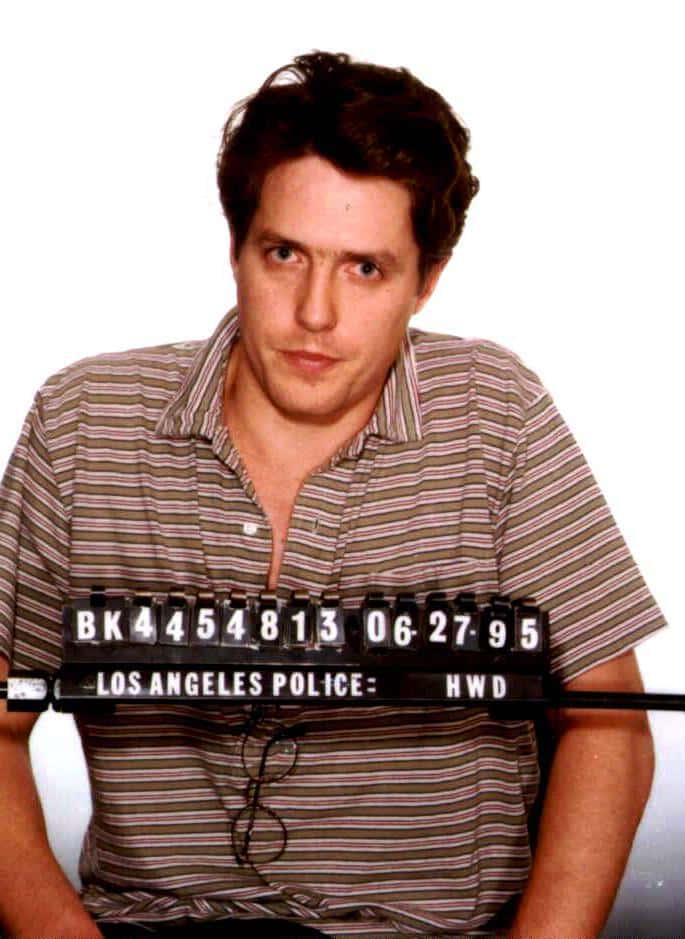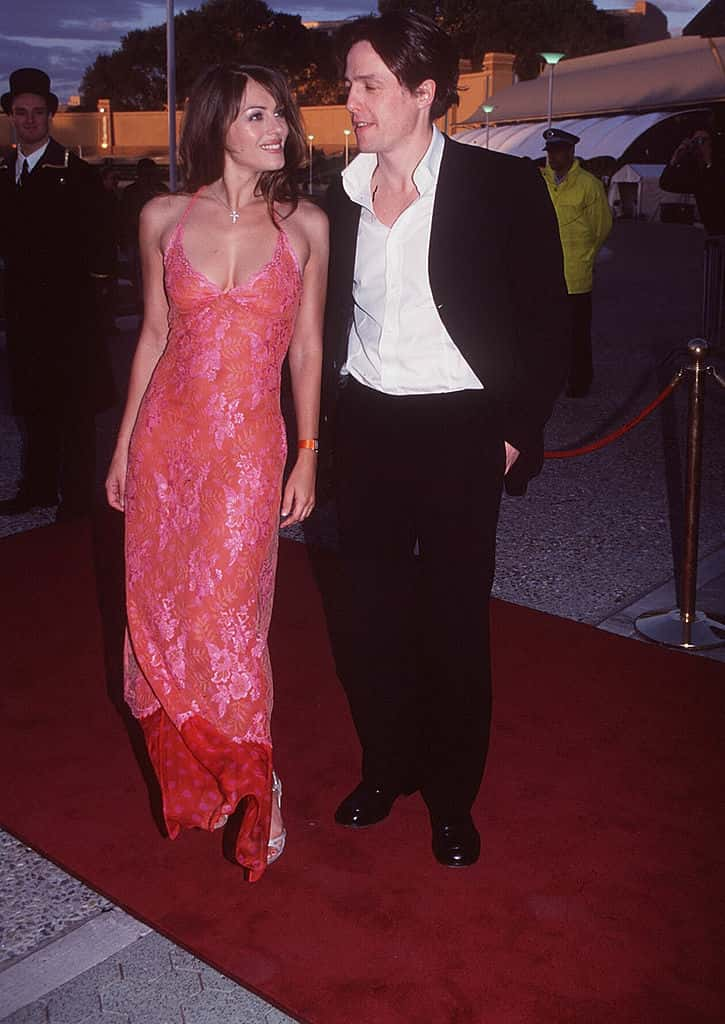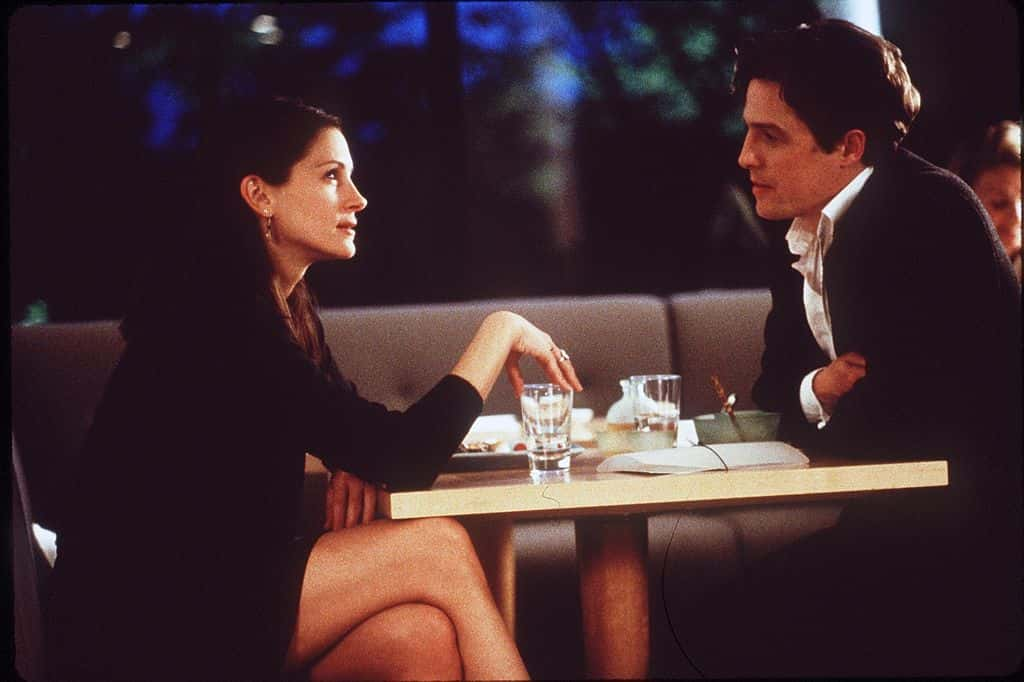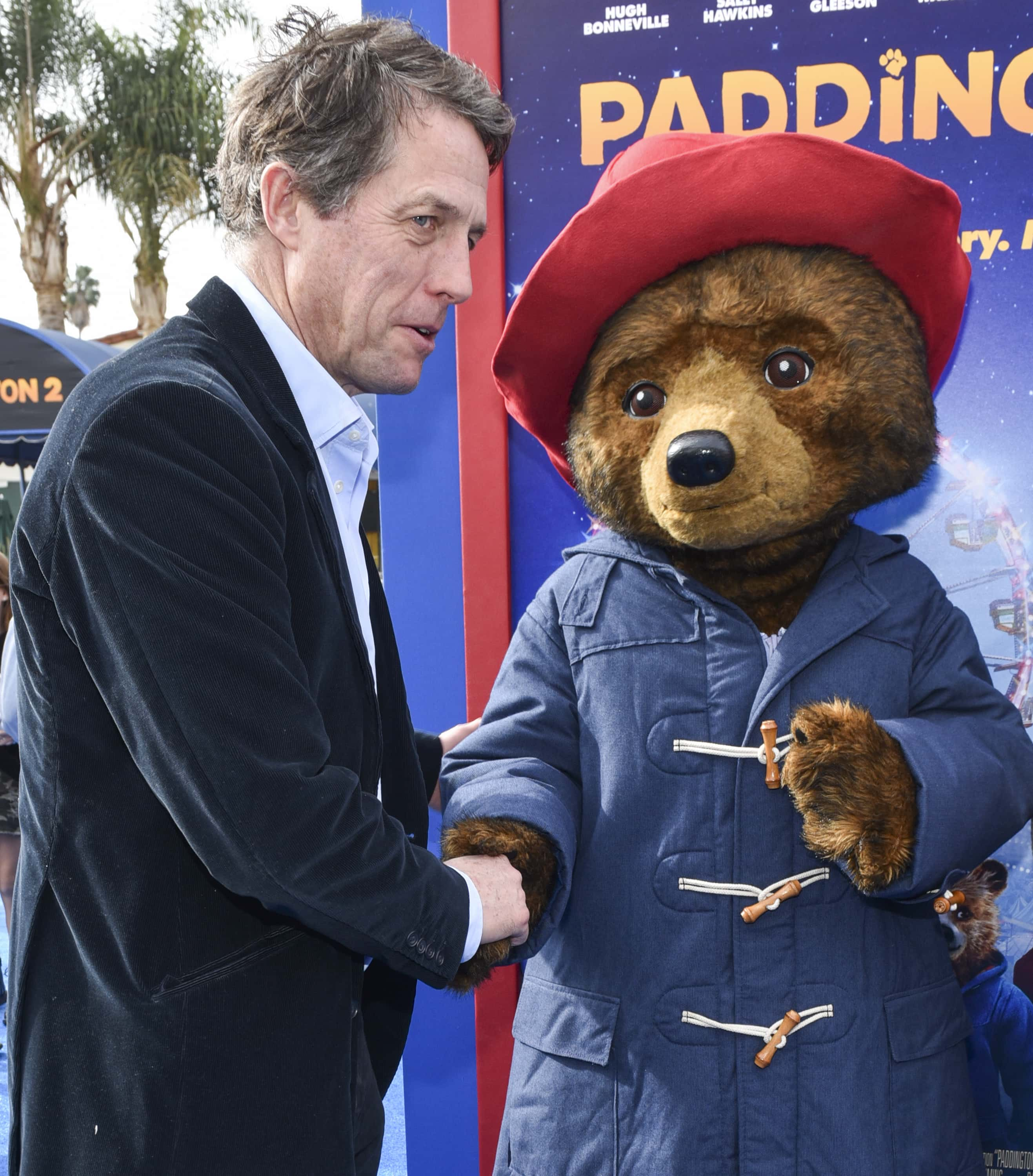Hugh Grant: Rom-com king, sex scandal to a Hollywood 'washout', how the actor got his mojo back

For those who thrived on the '90s and early 2000's staple diet of romantic comedies, Hugh Grant was the eloquent and charismatic ideal hero and the British accent was just the cherry on the cake. It began with 'Four Weddings And A Funeral', and the wide-eyed adoration for Grant grew stronger in 'Notting Hill' and 'Love Actually' with a twist in 'Bridget Jones Diary. He became the symbol of romcoms - the everyday affable Englishman, sometimes a petty one as we saw in 'Two Weeks Notice'. And then, slowly as reel and real-life merged and his personal life became the talk of the town, the magic slowly began to peter out and it looked as if Grant was stuck in an irreversible rut - of an actor trying to hold on to his fame, by revisiting his glory days. The public didn't take to him, as they had done earlier. If we could pinpoint, perhaps it came to an indefinite pause during the 2009 film 'Did You Hear About The Morgans', and soon Grant faded from the big screen. Ironically, the age of quintessential romantic comedies appeared to have vanished with him as well, as filmmakers found it hard to strike the right note.
He gradually made a comeback, but he did it so steadily and quietly that no one could predict where his 'coming back' began, exactly. Let's go through his career, momentary fall from grace, return to stardom, fading away from the spotlight and finally finding a determined presence on screen.
Sex scandal

It was just after he had shot to fame with 'Four Wedding And A Funeral'. In 1995, the actor was arrested for paying a sex worker, named Divine Brown, to perform oral sex on him in a car. He fell from grace due to 'a moment of insanity', as he called it and was facing the possibility of six months in jail for indulging in 'lewd conduct' in a public place. Nevertheless, the actor did not face court, was ordered to pay a fine of 1,000 pounds and go on an Aids Education Program. On NBC Primetime Tonight's Show With Jay Leno, Grant looked sheepish and asked for forgiveness from his viewers. "I’ve done an abominable thing, and she’s [Liz Hurley, his partner at the time] been amazing about it, and contrary to what I read in the paper today, she’s been very supportive, and we’re going to try to work it out.’" The couple split two years after the scandal.
The incident occurred just days before his film 'Nine Months'. In an interview with CBS, Grant maintained that the issue was blown up because people believed him to be the character in 'Four Weddings And A Funeral'. "It was entirely to be expected, that there would be a huge hullabaloo about that, particularly given this rather absurd persona that I had been given about who I was on the back of Four Weddings and a Funeral," he said, later. "People thought I was this nice character I played in that film. And so I suppose the contrast between that person and this seedy behavior was juicy stuff. And I quite understand why it was a big story.”

Nevertheless, as it was the pre-Twitter era, Grant seemed to scramble back on the hero's pedestal and continued being a heartthrob in films. As an explanation on how his career didn't quite suffer because of this, he said that Hollywood “only thinks about money” and, despite his mugshot appearing everywhere, his films still went on to be a success. "And that film did fine, the film that was coming out at the time. And yeah, that's all that really matters: As long as you make them money, they don't care what you get up to," he said.
Notting Hill, Bridget Jones and what followed
The sex scandal was out of people's minds, soon. After 'Notting Hill', he was just remembered as the English bloke, who was love with an actress Anna Scott (Julia Roberts). The film became a classic, and its dialogues are still spouted today, one of them being 'I'm just a girl, standing in front of a boy, asking him to love her', and another one 'Whoopsaidaisy!'. Only Grant could make an ordinary phrase like that so special. The rom-com king continued breezing through, with a twist in 'Bridget Jones Diary', where he played a casanova. Along came 'Two Weeks Notice', where he played the role of a rich spoilt brat, who falls in love with his assistant, played by Sandra Bullock. He made a mark for himself as the tongue-tied, bumbling, romantic boy-next-door and his films always sent fans melting into a puddle. At the start of the 21st century Grant seemed to have lost interest in his career. He made a one-off appearance in rom-coms like 'Music and Lyrics' and then there was 'Did You Hear About the Morgans?. They, for a while revived memories of his glory days but all of this left both actor and audience wondering where the magic had gone. Grant was out of films for some time.

"I’ve always been a reluctant actor. So taking a break wasn’t a great hardship, especially as I was so bound up in this political campaign,” Grant told Vanity Fair. What political campaign, you ask? Well, Grant was keeping himself busy, though. If not for films, he managed to make headlines with his political rants. After the expose of an ex-paparazzo he wrote for New Statesman, he was a passionate advocate for the group Hacked Off and that called for political inquiry into the widespread hacking of the British press. As he told Vanity Fair, "That was all fascinating and dramatic and really refreshing as well, to do something that was completely nothing to do with showbiz." One of his targets was Rupert Murdoch and News International, rare figures for actors to fight against.
Tip-toeing back into acting
Paddington director and writer Paul King and his co-writer Simon Farnaby wanted a villain for the follow-up to 'Paddington', and they decided to write to him. “He seemed to have sort of retired at the time,” King told Vanity Fair. “We wrote this very awkward letter—‘We’ve come up with this role, of a kind of vain, washed-up old ham, whose best days are sort of behind him, his lips are sort of heading south along with his jawline, and we thought of you.’ Luckily he saw the funny side."
Grant later said that he believes that 'Paddington 2' might have been the best film he had ever been in and was annoyed when social media derided him for being in a kids film. "It’s particularly annoying in the case of Paddington 2, because I genuinely believe it may be the best film I’ve ever been in," he said.

This role was similar to the character he played in 'Florence Foster Jenkins' in 2016, directed by Stephen Frears. He delved into the insecurities of the character and could link it to himself. This performance earned him a Golden Globe and a BAFTA nomination. Soon, Frears came to him with another script about Jeremy Thorpe, a British MP whose secret affair with a younger man named Norman Scott,—and his apparent efforts to have Scott murdered, became one of the biggest scandals of the 1970s. Fans of the show 'A very English Scandal' were duly impressed by Grant's superb performance and all of a sudden no one cared that the dimpled hero was not tripping over his words and did not need to get the girl in the end.
Grant didn't have just one comeback, he made many. He broke away from the mold that had defined him for a long time. He realized he could not bank on just the starry-eyed romantic hero avatar anymore because people were changing. He had to push himself and for that a break was necessary. This break encouraged him to step out of the box. Or like Frears later said, "He had children and simply just grew up."










